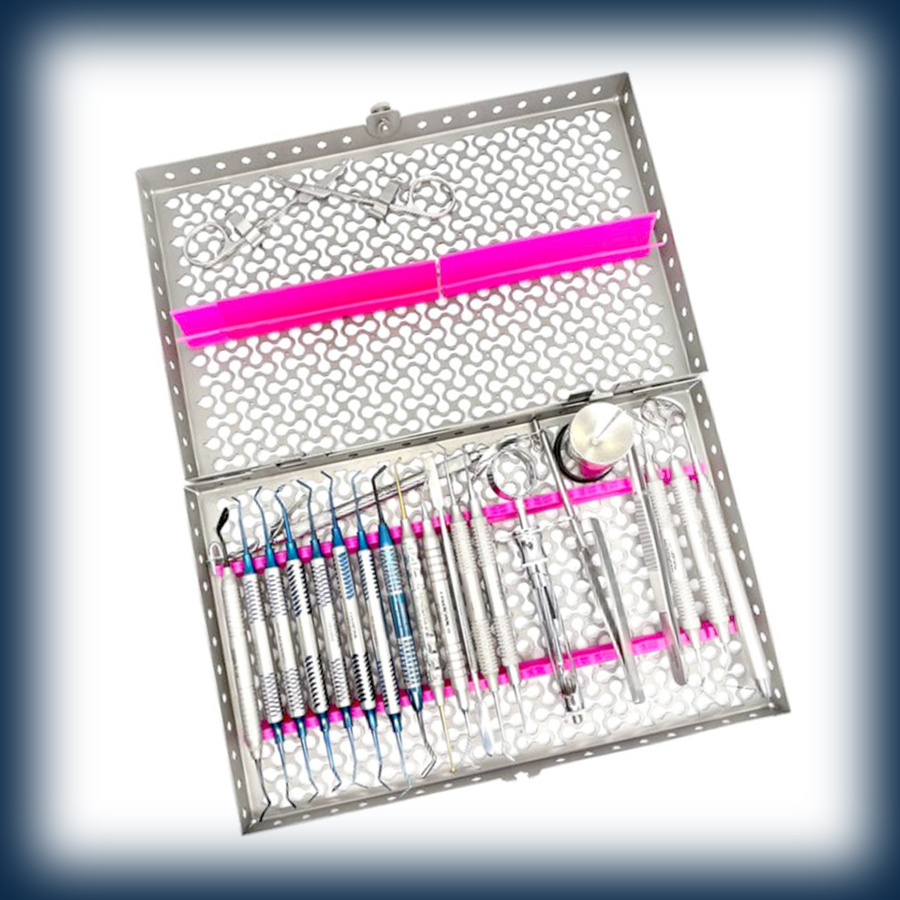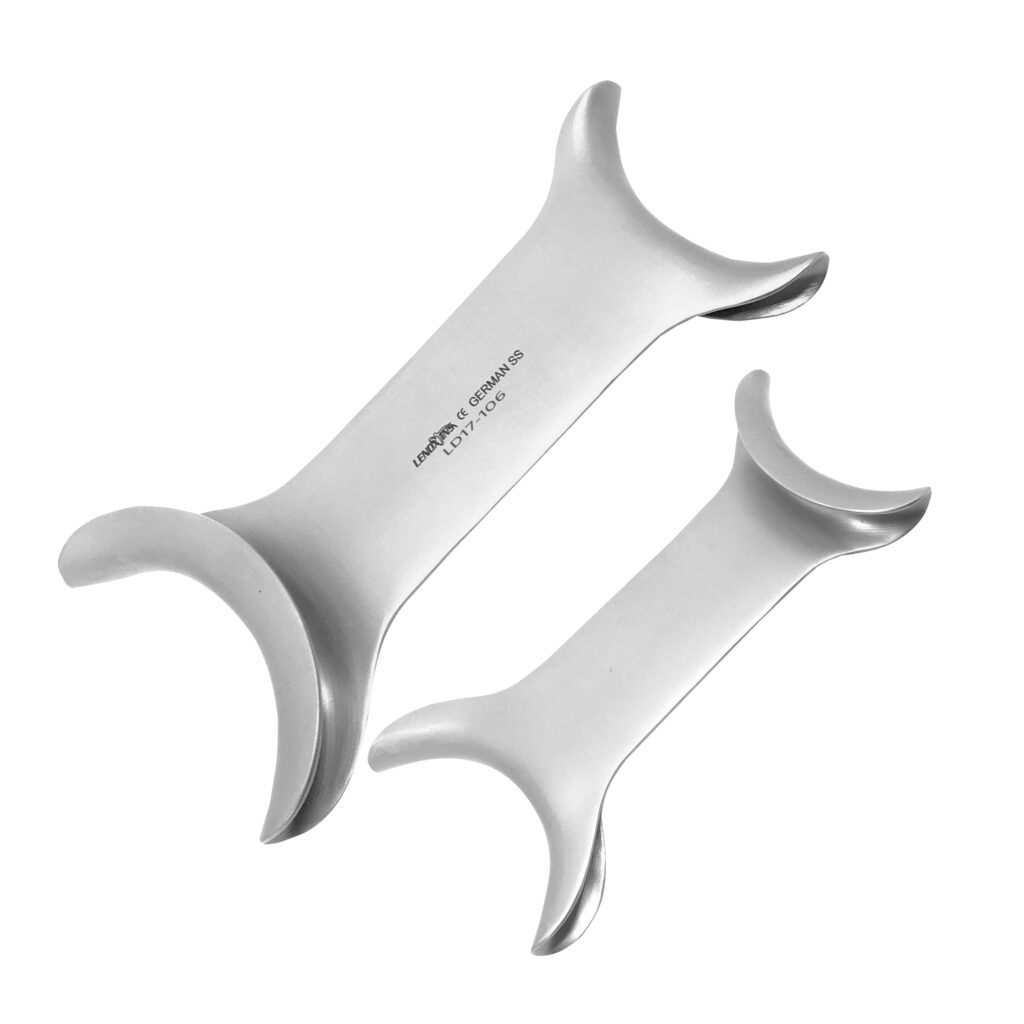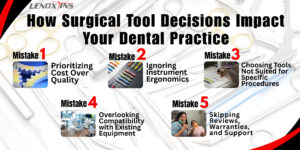The Dentist’s Guide to Choosing the Right Surgical Instruments
- LENOX INC CANADA
- August 21, 2024
- Dental Instruments

Introduction In the rapidly evolving field of dentistry, the quality of surgical instruments can significantly influence the outcomes of dental procedures and the overall efficiency of your practice. Choosing the right tools not only enhances patient satisfaction but also boosts the confidence of dental professionals in delivering exceptional care. This guide provides a comprehensive overview of the essential factors to consider when selecting dental surgical instruments, ensuring you make informed decisions that align with the needs of your practice.
Why Quality Matters in Dental Instruments The cornerstone of any successful dental surgery is the quality of the instruments used. High-quality surgical tools are designed to offer precision, durability, and reliability—key attributes that affect the accuracy and speed of dental procedures. Using subpar instruments can lead to complications such as prolonged procedure times, increased patient discomfort, and higher risks of infection. Conversely, premium instruments made from superior materials can withstand repeated sterilization without degrading, making them a wise investment for any dental practice.
Understanding Different Types of Dental Surgical Instruments Dental surgical instruments come in various forms, each tailored for specific procedures. Here’s a look at some key types of tools and their applications:
- Extracting Forceps: Used for tooth extraction, these must be ergonomically designed to provide a good grip and minimize patient discomfort.
- Scalpels: Essential for incisions, high-quality scalpels ensure precise cuts and come in disposable forms to maintain sterility.
- Elevators: Used to loosen and lift teeth before extraction, elevators should be strong and durable to handle the stress of the procedure.
- Chisels and Gouges: Ideal for removing hard tissues, these instruments must be sharp and made of high-strength steel to resist wear.
- Retractors: These are used to hold open the cheeks, lips, or tongue to improve visibility and access during surgery.

Features to Consider When Choosing Dental Surgical Instruments Selecting the right dental instruments involves considering several features that enhance functionality and user experience:
- Material Quality: Stainless steel is preferred for its strength and resistance to corrosion. Some instruments also come with coatings like diamond-like carbon to enhance durability.
- Ergonomics: Instruments should be comfortable to hold, with a design that reduces hand fatigue during long procedures.
- Design and Technology: Advanced features, such as LED lights on handpieces, can improve visibility in the operating area, enhancing precision.
- Compatibility and Versatility: Choose instruments that are compatible with other tools and technologies used in your clinic to streamline operations.
The Lenox Promise: Commitment to Excellence At Lenox Instruments, we understand the critical role surgical instruments play in dental care. Our commitment to excellence is reflected in our rigorous quality control processes and the innovative design of our products. From advanced manufacturing techniques to responsive customer service, we ensure that every instrument meets the highest standards of performance and reliability.
Selecting the Right Supplier The choice of supplier is as crucial as the instruments themselves. A reliable supplier not only provides high-quality products but also supports your practice with excellent customer service, timely deliveries, and after-sales support. Look for suppliers who:
- Offer a wide range of instruments to cover all your surgical needs.
- Provide warranties and guarantees on their products.
- Have a transparent return and exchange policy.
- Are well-reviewed by other dental professionals.
Call to Action Elevate your dental practice by choosing the right surgical instruments. Visit Lenox Instruments today to explore our extensive range of top-tier dental tools designed for precision and durability. For more information or to schedule a demo, contact our expert team who are ready to assist you in enhancing your surgical capabilities.
Conclusion Selecting the right dental surgical instruments is a crucial decision that impacts the quality of care provided in your dental practice. By focusing on quality, ergonomics, and the right supplier, you can equip your practice with tools that not only meet but exceed the demands of modern dentistry. Remember, the right tools not only improve the efficiency of your procedures but also contribute to the overall satisfaction and safety of your patients.




